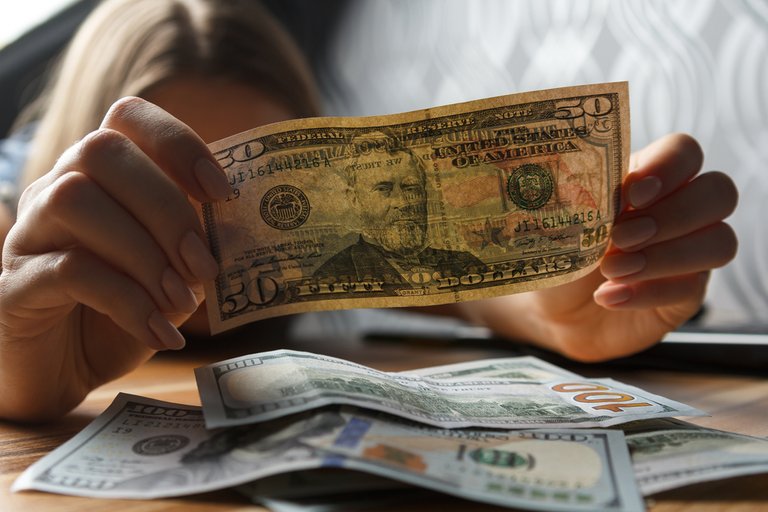
I'm 36 years old and was raised in a middle class family. Besides growing up in a war-struck country, I can say my childhood was pretty typical; I had two loving parents who tried to raise me with all the traditions their parents raised them with. I have siblings both older and younger, so that makes me the middle child.
Growing up, I didn’t get to learn about money until I was around twelve or thirteen - much too old in my view. I guess that is typical of our society. My father had his own business and he was doing well that I never felt the pinch of not having enough. We lived in a nice house with a nice backyard and a pool. I had my own room and got everything I asked for (I was, in general, a modest girl so I didn’t ask for much). Hence, money was never a concern.

It wasn’t until my teen years when we moved to Switzerland that I started to realize there was a restriction of some sort to getting what you wanted in the world. At first we lived in a hotel and had meals prepared and everything served to us. After a few months, we moved to an apartment and we began buying food from the supermarket. I remember my mom complaining about the cost of groceries and the value of what we were getting compared to the price we had to pay. My mom was used to the bazaars where she was able to buy a box of herbs or pounds of fruits with such ease and now she not only had to be cautious in her spending, but things were extremely scarce compared to what she was used to. I remember thinking how strange that was. How unfair it was not to be able to get as much of what you wanted. The idea of sacrificing something (money) in order to get something else (groceries) or needing to choose one thing over another thing was very foreign to me. I don’t even think I still fully understood what money was or where it came from.

My dad (the money maker of the family) couldn’t work in Switzerland since he didn’t have a work visa and we were living off his savings. At times, talk around the house centered on his lack of work and hence money; again, two ideas that meant very little to me. With all of this, I was still not exposed to the hardships of not having a steady cash flow, living in a very high cost of living country and not knowing when, or if, it will all change. My parents seemed to be more determined to keep us all "unharmed" from the harsh realities of adult responsibilities. Needless to say, as an adult, for a long time, I had a disconnect between the money I made and the money I spent. I did start working part time from my late teens. But the money I made became added value to my teen life and not a means to an end. I now had extra money to buy cool things with and that’s when it all began… my parents still paid for all my expenses; room, food and clothes.
This pattern continued even after my college years when I got a full-time job and now made so much more money that I had no idea what to do with it. So I did what any sane adult does: I bought a car, went on expensive trips around the world and spent money on clothes. When I began to live on my own and pay my own bills, that’s when my bad habits began to become a problem.
I often wonder, if I had learned the value of money at an earlier age, would my relationship with money be better? I think it is important to train kids early on about money. Not only can the experience be lots of fun for them, but they can learn to have a healthy relationship with their wallets years before they go off to college. College years are often the first time many people begin to take on financial responsibility and where they learn, unfortunately, to make life-long mistakes.
Total U.S. household debt currently is $14 trillion, with average household debt ranging between $10k-$20k - and that doesn't include one's mortgage. Most people have 5-10 credit cards open at any given time. What this all means to me is that most of us are living beyond our means. Now, we can argue that it is the economy's fault, or that we don’t make enough money or that health insurance costs are too high. But I know for myself and most people I know in my life, the problem is much closer than that and it would be wise to look a bit at our own relationship to money and how we are contributing to the national debt!
Hello @daryazfv1980 http://steemspeak.com found you WORTHY to be upvoted. Come to our 24/7 Radio-Station and join our studio via Teamspeak 3.
People want to buy free stuff and not pay for it. Politicians offer this service through
kicking the can down the road policy. The national debt (of every country) is this phenomena. Maybe if people would be more responsible with their financials, we would not be in this big mess. When the debt comes down, it will be pretty bad for average people.